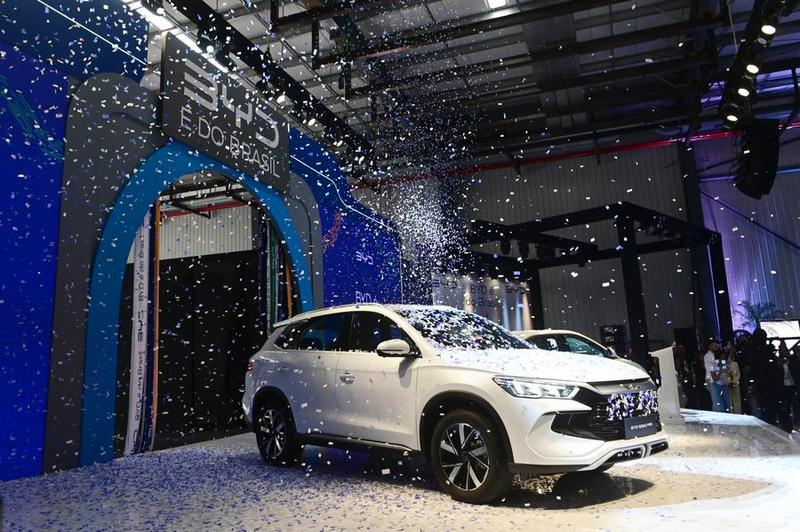Chinese carmakers shifting gears with global factory push


Chinese carmakers are building up overseas production capabilities, signaling a shift from their exports-based go-global strategy.
BYD rolled out its first Brazil-made passenger vehicle from its factory in Bahia state last week, marking a new milestone in its global expansion.
"From breaking ground to the first car rolling off the production line, it has only taken us 15 months.
"This achievement heralds a new chapter for BYD and sustainable transportation in Latin America," said BYD Executive Vice-President Stella Li.
With a total investment of 5.5 billion reais ($1 billion), BYD's production base in Brazil manufactures pure electric and plug-in hybrid models, with a planned annual capacity of 150,000 vehicles.
The factory, located in the coastal city of Camacari, benefits from a well-established auto supply chain and mature port logistics infrastructure. It is expected to create 20,000 job opportunities in the area.
Jeronimo Rodrigues, governor of Bahia state, praised the completion of the BYD factory, saying Brazil is ready to embrace a greener, more innovative future, which will drive the local economy, employment, and technological transformation.
Since BYD introduced its passenger NEVs to the Brazilian market in 2021, the company has sold 130,000 units cumulatively in the country.
In the first quarter of 2025, BYD's sales in Brazil exceeded 20,000 units, which put it in the top spot for local NEV sales.
In May, BYD jumped to fourth place in the Brazilian auto brand retail sales ranking, securing a 9.7 percent market share.
So far, BYD have entered the markets of more than 110 countries and regions worldwide.
In the first half of 2025, its overseas sales exceeded 470,000 vehicles, jumping 132 percent year-on-year.
BYD is not alone among Chinese carmakers to explore overseas production. In mid-May, Changan Auto began production at its first overseas new energy vehicle factory in Thailand.
The factory currently has an annual capacity of 100,000 vehicles, which the company plans to double to 200,000 units in the coming years.
Changan said the site will eventually produce models across Changan's three key brands — Changan, Deepal and Avatr.
The company already offers several NEV models in the Thai market, including the Deepal S07, E07 and the Avatr 11.
Over the next three years, it plans to introduce 12 additional NEV models to local consumers.
Beyond vehicle manufacturing, Changan said it would establish a spare parts warehouse in Rayong and work to localize its supply chain.
The company expects to generate over 30,000 jobs across the upstream and downstream value chain in Thailand.
Besides Southeast Asia, Changan is planning a European factory to support its future sales on the continent and is already weighing up possible locations for the plant, an executive told Reuters last week.
"We're committed to being in Europe, making in Europe for Europe," said Nic Thomas, Changan's European head of marketing, sales and service, during a test drive of the automaker's electric Deepal S07 SUV at an event in the United Kingdom.
"We're working on local manufacturing solutions here," said Thomas. He said he could not discuss timing for a European assembly plant but said "we already believe we're going to hit the (sales) volume, so we're already in the planning stages."
Analysts said it has been a norm for carmakers to build overseas facilities for local car buyers, as Volkswagen and Toyota has done over the past decades, considering cost, speed for cars to hit the market, and varying local regulations.
They said the move may cut the exports figure but accelerate Chinese carmakers' efforts to go global in a real sense.




































